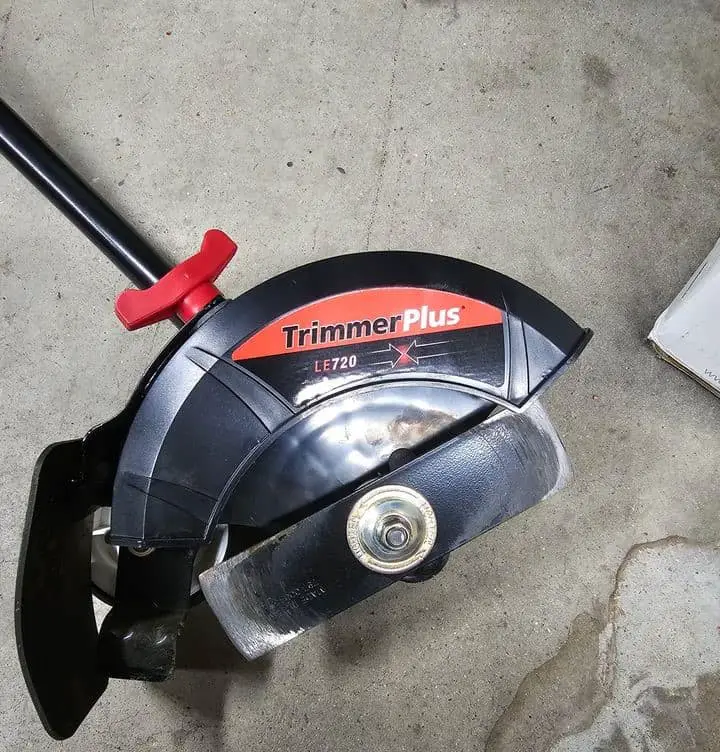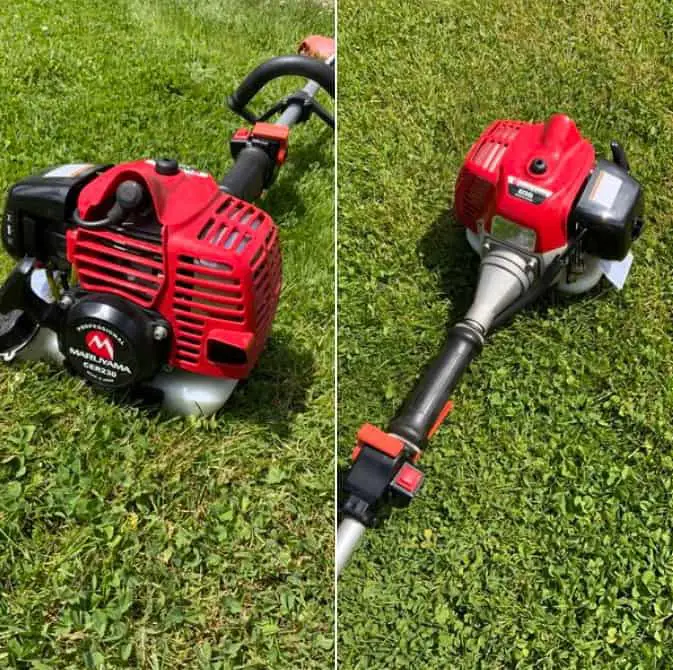Hello my friend!
Ever wondered if your trusty string trimmer could ignite a fire? I definitely have, especially after learning that the California Department of Forestry and Fire Protection responds to over 1,600 fires per year caused by garden tools like these.
This blog post will guide you through how a string trimmer can potentially start a fire and provide handy tips on prevention measures. Stick around to learn more about safe trimming practices!
Contents
Can A String Trimmer Start A Fire?
Yes, a string trimmer can start a fire. I found out that the metal blades on some weed eaters can cause sparks. This happens when they hit hard objects like rocks. Those sparks might turn into flames if it’s hot enough outside.
Not just string trimmers but also other outdoor tools can light a wildfire. We need to be careful with lawn mowers, chain saws, grinders, welders and tractors too. Even Fiskars Brands had to recall their SmartPower String Trimmers because of fire risks!
How a String Trimmer Can Start a Fire
A string trimmer can start a fire through sparks caused by metal blades hitting rocks and the use of flammable fuels.
Read more: Can You Put A Blade On A String Trimmer?

Sparks from metal blades hitting rocks
Metal blades on a string trimmer can be risky. If the blade hits a rock, it makes sparks. If these sparks are hot enough, they can start a fire. Dry grass and leaves can catch this spark and burn quickly.
Lawn mowers also pack the same punch. Just like with trimmers, their metal blades hitting rocks or other hard stuff make sparks too. Fires easily start this way if dry grass or other dried plants are around to catch the spark.
Use of flammable fuels
Flammable fuels like propane give power to many string trimmers. These fuels can catch fire in the right conditions. Even a small spark from the metal blade of your string trimmer can ignite these fuels.
If there’s fuel leak, it ups the risk even more. The engine vibrates when you use your trimmer. This grabs and shakes the fuel line over time which creates leaks in it! Now, if propane leaks out? That can lead to a bad fire hazard! You should always check for fluid leaks on your mower or trimmer and fix them right away, before they become a big problem.
Fire Prevention Tips for String Trimmer Use
To prevent fires when using a string trimmer, it is important to clear the area of any flammable materials.
Read more: How Does Auto Feed String Trimmer Work?
Clear the area of flammable materials
To prevent fires when using a string trimmer, it’s important to clear the area of anything that can catch fire. Here are some tips to keep in mind:
- Remove dead plants, grass, and weeds from the area. These can easily catch fire and spread quickly.
- Trim trees regularly and make sure branches are at least 10 feet away from where you’ll be using the trimmer. This helps prevent sparks from igniting any nearby foliage.
- Check for any flammable debris such as leaves, paper, or twigs. Clear them away before starting your trimming work.
- Keep a distance of at least 10 feet around the space where you’ll be using the string trimmer. This provides a buffer zone in case sparks fly.
Use plastic lines instead of metal blades
I always make sure to use plastic lines instead of metal blades in my string trimmer. This is because plastic lines are less likely to start a fire compared to metal blades. When I’m trimming my lawn, I want to minimize any potential risks, and using plastic lines helps me do that.
The risk of sparks from metal blades hitting rocks or other materials is reduced when I opt for the safer option of plastic lines. It’s a small change that can make a big difference in preventing fires while using a string trimmer.
Another advantage of using plastic lines is that they are less likely to ignite flammable fuels. This gives me peace of mind knowing that I’m not putting myself or my property at risk when operating my string trimmer.
Whether it’s dry grass or fuel spills, the lower chances of starting a fire with plastic lines provide an added layer of safety.
Avoid using trimmers during hot and dry conditions
Using trimmers during hot and dry conditions can increase the risk of starting a fire. When it’s hot and dry outside, the grass, leaves, and other vegetation are more flammable. This means that any sparks or heat generated by the trimmer can easily ignite a fire.
To prevent this from happening, it’s best to avoid using trimmers during these conditions. Instead, wait for cooler weather or choose a day when there is some moisture in the air. By being cautious and mindful of weather conditions, you can significantly reduce the chances of accidentally starting a fire while using your string trimmer.

Conclusion
In conclusion, it is important to be aware that a string trimmer can start a fire. Sparks from metal blades hitting rocks and the use of flammable fuels increase the risk. To prevent fires, clear the area of flammable materials, use plastic lines instead of metal blades, and avoid using trimmers during hot and dry conditions.
Stay safe by following these fire prevention tips when using a string trimmer.
FAQs
1. What precautions should I take to prevent a fire when using a string trimmer?
To prevent fires while using a string trimmer, make sure to clear the area of any dry grass or debris before trimming. Avoid using the trimmer during hot and dry conditions, and always keep an eye on the cutting line for Sparks or smoldering.
2. How can I safely use a string trimmer around my house?
To safely use a string trimmer around your house, maintain at least 10 feet of clearance between the tool and any flammable objects such as wooden fences or shrubs. Use caution near gas grills or propane tanks to avoid accidental ignition.
3. Are there any alternatives to using a string trimmer that are safer?
Yes, there are alternative methods for maintaining your lawn that may be safer than using a string trimmetr. These include manually pulling weeds, using hand tools like shears or clippers, or utilizing electric-powered edgers that don’t have flammable fuel sources





